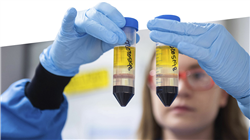University certificate
The world's largest faculty of pharmacy”
Why study at TECH?
Thanks to this 100% online Postgraduate certificate, you will use epidemiological evidence to make informed decisions on the prevention, treatment and follow-up of diseases”

In a new report, the World Health Organization highlights the need to use sound epidemiological methods to understand both the distribution and determinants of disease in populations. In this regard, the organization recognizes that pharmacists play an important role in health promotion and disease prevention at the community level. Given this, Epidemiology Research Methodology is a valuable tool for professionals to understand health problems and implement interventions based on scientific evidence to address them.
Given this framework, TECH presents an innovative program in Postgraduate Certificate in Research Methodology in Public Health Epidemiology. The academic itinerary will analyze Biostatistics in detail, taking into account issues such as types of variables, identification of statistical tests or confounding factors. At the same time, the syllabus will provide graduates with the most effective computer software to carry out statistical analysis. Thanks to this, pharmacists will develop competencies to skillfully handle tools such as STATA® to analyze epidemiological data. In line with this, the program will delve into the different phases of qualitative research in Public Health. In this way, professionals will adequately identify the most appropriate qualitative methods to appreciate complex phenomena related to the wellbeing of the population.
The program is based on the disruptive Relearning method promoted by TECH. This learning system consists of the reiteration of the most relevant contents, so that they are engraved in the students' memory in a progressive way. The curriculum will also offer various clinical case studies, which will allow pharmacists to get closer to the reality of clinical care. Along the same lines, graduates will have access at all times to a digital library full of audiovisual materials (explanatory videos, interactive summaries or infographics) and additional didactic materials such as complementary readings. This will enable them to consolidate their knowledge in a more dynamic way.
You will broaden your knowledge by analyzing real cases and solving complex situations in simulated learning environments"
This Postgraduate certificate in Postgraduate Certificate in Research Methodology in Public Health Epidemiology contains the most complete and up-to-date scientific program on the market. The most important features include:
- Development of practical case studies presented by experts in health sciences
- The graphic, schematic, and practical contents with which they are created, provide scientific and practical information on the disciplines that are essential for professional practice
- Practical exercises where the self-assessment process can be carried out to improve learning
- Its special emphasis on innovative methodologies
- Theoretical lessons, questions to the expert, debate forums on controversial topics, and individual reflection assignments
- Content that is accessible from any fixed or portable device with an Internet connection
You will deepen your understanding of the benefits of Artificial Intelligence in qualitative studies, among which the efficient analysis of large volumes of data stands out"
The program’s teaching staff includes professionals from the industry who contribute their work experience to this program, as well as renowned specialists from leading societies and prestigious universities.
The multimedia content, developed with the latest educational technology, will provide the professional with situated and contextual learning, i.e., a simulated environment that will provide immersive education programmed to prepare for real situations.
This program is designed around Problem-Based Learning, whereby the professional must try to solve the different professional practice situations that arise during the course. For this purpose, the students will be assisted by an innovative interactive video system created by renowned and experienced experts.
Looking to handle the most cutting-edge QDA software? Achieve it with this program"

Thanks to TECH's characteristic Relearning system, you will learn at your own pace without depending on external teaching constraints"
Syllabus
Through this program, pharmacists will be characterized by a solid knowledge of the fundamentals of Postgraduate Certificate in Research Methodology in Public Health Epidemiology. The curriculum will delve into the multivariate statistical models of dependency, enabling graduates to provide highly personalized counseling based on the individual needs of users. The program will also provide pharmacists with the most advanced computer software to perform statistical analysis and interpret the results obtained. In addition, the didactic materials will analyze the ethical principles of Public Health research and international regulations.

You will conduct epidemiological research to evaluate the efficacy and safety of drugs in the population, thus contributing to informed decision making on the use of drugs"
Module 1. Epidemiology Research Methodology
1.1. Biostatistics: Univariate, Bivariate and Multivariate Analysis
1.1.1. Types of Variables
1.1.2. Normality Study of a Distribution. Parametric and Non-Parametric Statistics
1.1.3. Dependent and Independent Variables. Confounding Factors
1.1.4. Identification of the Necessary Statistical Tests
1.2. Models and Methods in Multivariate Statistics of Dependence and Interdependence: Statistical Inference. Standardization and Prediction. Multiple Linear Regression. Regression and Cluster Analysis
1.2.1. Multivariate Models
1.2.2. Multivariate Models: Multiple Linear Regression
1.2.3. Cluster Analysis
1.3. Models and Methods in Multivariate Structural Statistics: Logistic Regression, Poisson Regression, Survival Analysis and Longitudinal Data. Kaplan-Meier and Log-Rank Statistics
1.3.1. Multivariate Models: Logistic Regression
1.3.2. Kaplan-Meier and Log-Rank Survival Analysis
1.3.3. Poisson Regression
1.4. Incidence and Prevalence Models in Public Health
1.4.1. Incidence Studies
1.4.2. Prevalence Studies
1.4.3. Risk Analysis
1.5. Computer Software: Advanced Statistical Analysis with SPSS Package
1.5.1. Statistical Packages: R®, STATA® and Epidat®
1.5.2. Use of the SPSS® Package
1.5.3. Interpretation of the Results of Statistical Analyses Performed by SPSS® and Evidence-Based Decision-Making
1.5.4. Effective Communication of Statistical Findings to Specialized and Non-Specialized Audiences
1.6. Qualitative Methodology applied to Public Health: Theoretical, Conceptual, and Ethical Aspects
1.6.1. Qualitative Evaluation Applied to Public Health
1.6.2. Techniques of Qualitative Research Applied to Public Health
1.6.3. Collection, Analysis and Interpretation of Qualitative Data in Public Health Studies: Validity, Reliability and Generalization of the Results
1.6.4. Ethical Principles: Protecting Participant Confidentiality and Managing Potential Ethical Conflicts
1.6.5. Integration of the Qualitative Perspective in the Planning, Implementation, and Evaluation of Public Health Programs and Policies: Designing Effective Interventions Focused on the Population's Needs
1.7. Design and Phases of Qualitative Research in Public Health. Sample Designs
1.7.1. Design and Phases of Qualitative Research
1.7.2. Sampling
1.7.3. Elaboration and Justification of Data Collection Instruments
1.7.4. Data Analysis Process
1.7.5. Establishment and Justification of the Validity and Reliability Criteria of the Research
1.7.6. Design and Justification of the Communication and Dissemination of Results Plan
1.8. Designs of Interest for Public Health. Information Collection Techniques
1.8.1. Sampling
1.8.2. Surveys. Design of Surveys
1.8.3. Validation of Questionnaires
1.9. Analysis and Interpretation of Results. Digital Analysis of Qualitative Data
1.9.1. Text Analysis Software
1.9.2. Data Visualization Software
1.9.3. QDA (Qualitative Data Analysis) Software
1.9.4. Artificial Intelligence Applied to Qualitative Studies
1.10. Evaluation, Rigor, and Ethics in Qualitative Research in Public Health
1.10.1. Ethical Principles of Research
1.10.2. International Legislation and Regulations
1.10.3. Healthcare Ethics Committees

The teaching materials of this program, elaborated by these specialists, have contents that are completely applicable to your professional experiences"
Postgraduate Certificate in Research Methodology in Public Health Epidemiology
Would you like to acquire advanced skills in conducting high quality epidemiological research? You've come to the right place. At TECH Global University you will find the ideal option for you. Through the Postgraduate Certificate in Research Methodology in Public Health Epidemiology you will receive comprehensive and up-to-date training in data analysis and the application of findings in the field of public health. During the program, you will explore the fundamental principles of epidemiology, including epidemiologic study design, data collection and analysis, interpretation of results, and effective communication of scientific findings. In addition, topics such as risk assessment, causality in epidemiology, evidence-based medicine, and decision making based on sound data will be addressed. One of the key advantages of this course is its practical and applied approach, you will have the opportunity to apply the methodologies learned through research projects, real case studies and epidemiological data analysis, developing critical skills in identifying disease patterns and formulating conclusions based on scientific evidence.
Specialize in research methodology in public health epidemiology.
The 100% online format offers unparalleled flexibility, allowing you to access the content from anywhere and at any time. This facilitates the integration of learning with professional and personal responsibilities, allowing you to advance at your own pace and adapt your study schedule according to your needs. The faculty is composed of experts in epidemiology and public health research methodology, who bring a combination of theoretical knowledge and practical experience in the field. Upon completion, you will be prepared for key roles in health organizations, academic institutions, government agencies, the pharmaceutical industry and other related sectors. You will be able to design, implement and evaluate epidemiological research, contribute to public health decision-making and improve the quality of health care through scientific evidence. In short, this program will equip you with the tools necessary to address current and future challenges in epidemiological research and population health improvement. Enroll now!







